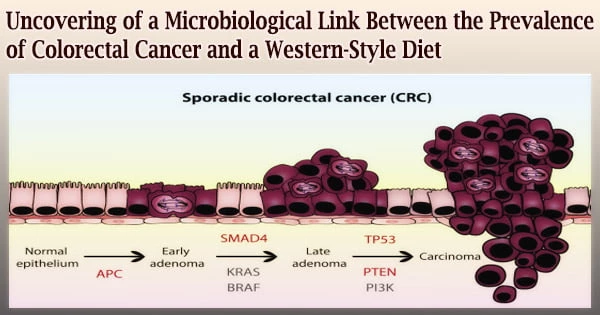A Western-style diet abundant in red and processed meat, sugar, and refined grains/carbohydrates is linked to an increased risk of colon cancer through the gut flora, according to recent studies.
The colon or the rectum is where colorectal cancer begins. Depending on where they first appear, these malignancies may also be referred to as colon or rectal cancer. Rectal cancer and colon cancer are frequently combined because they share many characteristics.
Colon tumor growth has been linked to chronic, low-grade inflammation brought on by recurrent bacterial infections; however, the role of brief, self-limited infections in bacterially induced colon carcinogenesis is yet unknown.
More than 134,000 participants’ data from two prospective cohort studies that were conducted across the United States were examined by Brigham and Women’s Hospital researchers together with partners. More than 1,000 colorectal cancers were examined for DNA from Escherichia coli strains, and eating habits were also examined.
The group searched for bacterial strains with polyketide synthase (pks), a unique genetic island. An enzyme that Pks encodes has been demonstrated to mutate human cell DNA.
These findings support our hypothesis that Western-style diets increase colorectal cancer risk through its effect on pks+ E. coli. This is the first study to link Western diet with specific pathogenic bacteria in cancer. Our next question is which component of western-style diet and lifestyle relates to colorectal cancer containing this bacterial species.
Shuji Ogino
Overall, the team discovered that a Western diet was linked to colorectal cancers with high concentrations of pks+ E. coli but not to tumors with low to no concentrations.
“These findings support our hypothesis that Western-style diets increase colorectal cancer risk through its effect on pks+ E. coli,” said corresponding author Shuji Ogino, MD, PhD, MS, of the Program in Molecular Pathological Epidemiology in the Department of Pathology at the Brigham.
“This is the first study to link Western diet with specific pathogenic bacteria in cancer. Our next question is which component of western-style diet and lifestyle relates to colorectal cancer containing this bacterial species.”





